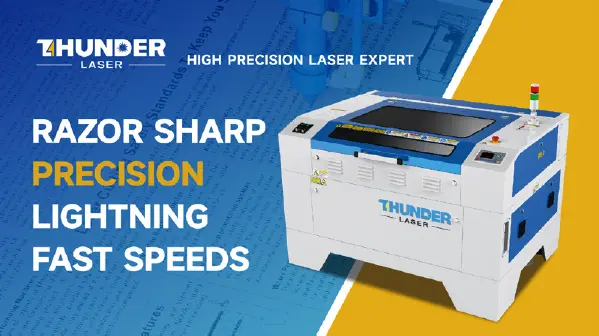In recent years, the application of laser cutting machines in the manufacturing industry has led to numerous innovations and transformations. Alongside the widespread use of 3D printing technology, laser cutting machines serve as pivotal tools in achieving mass production, reducing production costs, offering customization, driving innovation, and conserving resources. Let’s delve into the advantages of laser cutting machines in these aspects.
1.Achieving Mass Production
Compared to traditional manufacturing methods, laser cutting technology greatly facilitate product production and manufacturing processes. Unlike traditional methods that necessitate significant time and labor in creating molds, laser cutting technology directly transform designed CAD files into physical products, eliminating the need for molds. This capability makes laser cutting machines ideal for small-batch production or personalized customization, opening up possibilities in various industries like manufacturing, healthcare, and artistic creation.
2.Reducing Production Costs
Laser cutting technology significantly lower production costs compared to traditional methods. By employing precise programming and utilizing suitable materials, these machines complete the manufacturing process for most products without the complexities and manual interventions inherent in traditional methods. This reduction not only cuts down on labor expenses but also minimizes costs associated with acquiring and maintaining various equipment. Consequently, laser cutting machines have gained widespread acceptance among entrepreneurs and manufacturers.

3.Offering Customization
Similar to 3D printing technology, laser cutting technology provide extensive customization possibilities. While traditional manufacturing methods are constrained by mold-making limitations, laser cutting technology allows flexible design and manufacturing based on specific requirements without the necessity for molds. This flexibility enables products manufactured using laser cutting technology to cater to diverse user needs, such as personalized medical instruments and unique artistic creations.
4.Driving Innovation
The precision and adaptability of laser cutting technology foster innovation in the design and manufacturing sectors. Unlike traditional methods constrained by equipment and processes, laser cutting machines empower designers to unleash their creativity more freely. This technology can produce intricate and refined products, supporting flexible structural designs and fostering continuous advancements in the design domain.
5.Resource Conservation
Laser cutting technology contribute significantly to resource conservation. Unlike traditional manufacturing methods that result in substantial material waste due to machining and cutting processes, laser cutting technology allows precise control over material usage, reducing waste significantly. Moreover, laser cutting machines can utilize recyclable materials, reducing reliance on natural resources and positively impacting sustainability efforts.
In summary, laser cutting machines offer significant advantages in achieving mass production, reducing production costs, providing customization, driving innovation, and conserving resources. With ongoing technological advancements and innovations, laser cutting machines are poised to play an increasingly vital role in various fields, delivering more convenience and fostering innovation in the manufacturing industry.


.png) International
International
 United States
United States
 Brasil
Brasil
 Canada
Canada
 Costa Rica
Costa Rica
 Česká
Česká
 Ελλάδα
Ελλάδα
 Polska
Polska
 Ireland
Ireland
 Portugal
Portugal
 Lietuva
Lietuva
 Россия
Россия Deutschland
Deutschland
 Britain
Britain
 Україна
Україна
 France
France
 Sverige
Sverige
 Italia
Italia
 Norway
Norway
 Denmark
Denmark
 Romania
Romania
 한국
한국
 中国
中国
 ประเทศไทย
ประเทศไทย
 中国香港
中国香港
 Israel
Israel
 中國臺灣
中國臺灣
 India
India
 پاکستان
پاکستان
 پශ්රී ලංකා
پශ්රී ලංකා
 ジャパン
ジャパン
 Australia
Australia
 New Zealand
New Zealand
 South Africa
South Africa